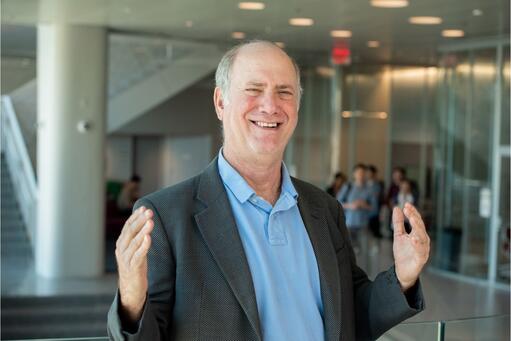Joel Brockner
- Phillip Hettleman Professor of Business
- Management Division
- Academic Director
- Columbia CaseWorks

- Areas of Expertise
- Decision Making & Negotiations, Leadership & Organizational Behavior
- Contact
- Office: 396 Kravis
- Phone: (212) 8544435
- E-mail: [email protected]
- Links
- Curriculum Vitae
Professor Brockner earned a B.A. in psychology from SUNY-Stony Brook and a Ph.D. in social/personality psychology from Tufts University. Since that time, he has taught at Middlebury College, SUNY College at Brockport, Tufts University, and the University of Arizona prior to joining the faculty at Columbia Business School in 1984.
Professor Brockner is a leading authority on a variety of psychological issues in the workplace, including change management (e.g., the effects of layoffs on the productivity and morale of survivors), leadership, decision-making, the role of the self, and cross-cultural differences in work behavior. He has published four books (one on decision-making in “sunk cost” situations, one on the causes and consequences of employees’ self-esteem, one on the role of justice in the workplace, and his most recent and award-winning book, entitled, “The Process Matters,” which considers how even small differences in how managers plan and implement decisions can have a significant effect on employees’ productivity and morale). In addition, he has published nearly 150 articles and book chapters in a variety of prestigious outlets (e.g., Administrative Science Quarterly, Journal of Personality and Social Psychology), and his article in the Harvard Business Review (HBR), entitled, “Why It’s So Hard to be Fair,” was selected to appear in HBR’s recent book, “Ten Must Reads in Emotional Intelligence.”
He was the 2020 recipient of a Lifetime Career Achievement award by the Academy of Management entitled, “Distinguished Scholarly Contributions to Management.” He also is the 2023 recipient of a similar award from the Society for Industrial and Organizational Psychology (SIOP, Division 14 of the American Psychological Association), entitled, “Distinguished Scientific Contributions.”
He also has served (or is currently serving) on the Editorial Board of numerous journals in the fields of management and psychology including the Academy of Management Journal, the Academy of Management Review, Organizational Behavior and Human Decision Processes, and the Journal of Personality and Social Psychology. Professor Brockner is a Fellow of the Academy of Management and the American Psychological Association (Division of Industrial and Organizational Psychology).
Joel was the Chairman of the Management Division at Columbia Business School from 2005-2011, and he also is the Faculty Director of several highly regarded executive education programs at Columbia Business School, including High Impact Leadership, Leadership Essentials, and the Social Enterprise offering, Developing Leaders Program. In addition, he is an executive coach, has served as an expert witness, and has consulted to a variety of organizations (including the Association of Art Museum Curators, BOCES, Brooks Brothers, Citigroup, ConocoPhillips, the Mellon Foundation, Morgan Stanley, Pfizer, State Farm Insurance, and Stratus Technologies) about the planning and implementation of significant organizational change, leadership development, and decision making.
- Education
-
BA, State University of New York, Stony Brook, 1972; MS, Tufts, 1974; PhD, 1977
- Joined CBS
- 1984
All Activities
How to Be the Bearer of Bad News: Reducing Adverse Employee Reactions to Layoffs
How Mistreatment from Peers Can Influence the Way Individuals Feel about Their Organization
Thriving as a Younger Boss: How Skilled Managers Can Overcome ‘Status Incongruence’
- Case ID
- 240403
The Center for Curatorial Leadership: Creating a Talent Incubator for Museum Curators
What are the challenges, opportunities and considerations that an organization faces as it grows from startup to mid-stage nonprofit?
- Case ID
- 200409
Doing Things Right in Tough Times: How Greatist Handled Its Layoffs
Can a start-up's collaborative, humanistic culture be preserved in the face of significant layoffs?
- Case ID
- 140410
The Office: A Question of Fairness
Is the meaning of "fairness" universal?